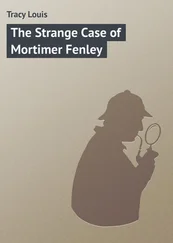Louis Tracy - The Terms of Surrender
Здесь есть возможность читать онлайн «Louis Tracy - The Terms of Surrender» — ознакомительный отрывок электронной книги совершенно бесплатно, а после прочтения отрывка купить полную версию. В некоторых случаях можно слушать аудио, скачать через торрент в формате fb2 и присутствует краткое содержание. Жанр: foreign_prose, на английском языке. Описание произведения, (предисловие) а так же отзывы посетителей доступны на портале библиотеки ЛибКат.
- Название:The Terms of Surrender
- Автор:
- Жанр:
- Год:неизвестен
- ISBN:нет данных
- Рейтинг книги:5 / 5. Голосов: 1
-
Избранное:Добавить в избранное
- Отзывы:
-
Ваша оценка:
- 100
- 1
- 2
- 3
- 4
- 5
The Terms of Surrender: краткое содержание, описание и аннотация
Предлагаем к чтению аннотацию, описание, краткое содержание или предисловие (зависит от того, что написал сам автор книги «The Terms of Surrender»). Если вы не нашли необходимую информацию о книге — напишите в комментариях, мы постараемся отыскать её.
The Terms of Surrender — читать онлайн ознакомительный отрывок
Ниже представлен текст книги, разбитый по страницам. Система сохранения места последней прочитанной страницы, позволяет с удобством читать онлайн бесплатно книгу «The Terms of Surrender», без необходимости каждый раз заново искать на чём Вы остановились. Поставьте закладку, и сможете в любой момент перейти на страницу, на которой закончили чтение.
Интервал:
Закладка:
“You run and see my mother about that,” he would say, with a quiet smile, when someone had endeavored to arouse his sympathy in behalf of a deserving object. “It’s my affair to make the money which she spends. Get her to O. K. your scheme, and it goes.”
In business he was equally unapproachable.
“Put it before MacGonigal,” was his regular formula. “I can’t do a thing without his say-so. But I warn you he is a terror. If there’s a kink in your proposition, he’ll find it, as sure as Jake can run his fingers onto a splint.”
For all that, the stout manager of mine and mill realized his limitations.
Once, and once only, did MacGonigal act in the belief that Power had referred a point to him for final settlement. A glib agent for mining machinery persuaded him to purchase a new type of drill, which proved absolutely useless when asked to disintegrate the hard granite of Colorado. Power laughed when he heard of its failure.
“You must have thought it was meant for cutting cheese, Mac,” he said lightly. But the barbed shaft struck home, and “the terror” bought no more drills without first consulting the man who understood them.
Thus, slowly but effectually, Power contrived to isolate himself from Bison. With an almost uncanny prescience he gave occasional directions in the mine, or suggested some modification in the milling process which invariably resulted in a higher percentage of extraction. For the rest, he devoted his days to the improvement of the stud farm, and his evenings to books. His mother tried vainly to dissipate this recluse trend of thought and habit. On one memorable occasion she invited a friend and her two cheerful and good-looking daughters to visit the ranch for a week. Timidly enough, she had sprung a surprise on her son, warning him of the forthcoming invasion only when it was too late to stop travelers already en route from San Francisco. Then she, like MacGonigal, had to learn her lesson. Derry agreed she had acted quite rightly. He merely expressed a suave doubt that the ladies would enjoy the enforced seclusion of a place like Dolores, but they might appreciate the air. Then he strolled out, and a telegram from Denver apologized for a sudden departure to Chicago. He explained in a letter that he was in need of a number of books, and thought it best to look through the bookstores in person rather than trust to catalogues. He returned two days after the guests had left, and there were no more experiments in that direction. Be sure that an anxious mother had long ago formed a remarkably accurate opinion as to the circumstances attending Nancy Willard’s wedding; but, being a wise woman, she said no word to her son concerning it, and was content to pray that the cloud might lift from off his soul, and that he might yet meet a girl who would make him a good and loving wife. For that is the way of women who are mothers – they find real joy only in the well-being of their offspring. Though this gentle-hearted creature knew that she was risking some of her own belated happiness in bringing about her son’s marriage, she was ready to dare that, and more, for his sake. She longed to renew her own youth in fondling his children. She was almost feverishly desirous of seeing him thoroughly established in a bright and cheerful home before the gathering mists shut him out forever from her sight. So she waited, and watched, and wondered what the future had in store for her loved one, and often, in her musings, she tried to imagine what manner of girl Nancy Willard was that she should have inspired such an enduring and hopeless passion.
The upheaval, when it came, was due to the simplest of causes. Power had foreseen the tremendous industrial development which lay before Colorado, and indulged his horse-breeding hobby on lines calculated to produce a large income wholly apart from the ever-increasing profits of the mine. The state needed horses, which must be strong of bone, with plenty of lung capacity; yet not too heavy, for mountain tracks and dusty valleys are anathema to the soft Belgian. They must be presentable animals, too, symmetrical, of untarnished lineage, and of a type fitted either for saddle or harness, because Colorado was making money in a hurry. Thus, it chanced that, shortly before Willard’s ill-omened visit to Bison, an Eastern agent wrote advising Power to attend a sale in New York. A noted breeder of hackneys, who had imported some of the best sires from England and Russia, and owned several fine Percherons, was breaking up his stud, and the chance thus presented of securing some magnificent stock might not be repeated during another decade.
Power asked his mother to accompany him; but she was afraid of the long journey in the torrid temperature then obtaining. Yielding to his wishes, she telegraphed a second time to her San Francisco friends, and they accepted an invitation joyously and promptly. Moreover, seeing that she was regarding with some misgivings his prospective absence from the ranch for a period which could not well be less than three weeks, he made a great concession.
“If Mrs. Moore and her girls can arrange to stay so long, keep them here until I return,” he said, and the pleasure in the worn, lined face fully repaid the effort those words cost him. So they kissed, and parted, and the weary years which have passed since that sunlit morning in Colorado have contained no diviner solace for the man than the knowledge that he left his mother well satisfied with her lot, and smiling a farewell without the slightest premonition of evil or sorrow. It is well to part thus from those whom we love; for no man knows what the future may have in store – and horror would have been added to the burden of Power’s suffering if recollections of the last hours of companionship with his mother were clouded by an abiding sense of unkindness or unfilial treatment.
So Power hied him to New York, which meant that he passed three hot nights and two hotter days in a fast-speeding train. The Rock Island Railroad took him across the rolling prairie to Omaha and Chicago, and, in the city which no steer nor sheep nor hog can visit and live, he entered the palatial Pennsylvania Limited, which, in those unregenerate days, dumped him out early in the morning on the New Jersey shore. Then, for the first time, he saw New York, and saw it from the river, which is the one way to see New York for the first time. Crossing by the ferry to 23d Street, he did not, it is true, secure that wondrous initial glimpse of a city, unequaled, in many respects, by any other, which is vouchsafed to the traveler arriving by sea. But, even twenty-two years ago, the busy Hudson was no mean stream, and when Power’s unaccustomed eye turned bewildered from the maze of shipping which thronged that magnificent waterway it found fresh wonders in the far-flung panorama stretching from Grant’s Tomb to the Battery. At that time Trinity Church was still a landmark, for New York had hardly begun to climb into the empyrean; so the prospect was pleasing rather than stupefying, as it is today.
A hot wind already hissed with furnace-breath over the fourteen miles of serried streets that lined the opposite shore; for, in the long years which have sped since Power first crossed the Hudson, New York has neither lengthened nor broadened. Even mighty Gotham cannot achieve the impossible; so, in the interim, several new cities have been superimposed on the older one which spread its beauties before his bewildered vision. The Paris – who of the middle generation does not remember the Paris , with her invariable list to starboard, after an ocean crossing? – was creeping slowly upstream, and Power was amused by the discovery that the big ship, like himself, moved with a limp. The City of Rome , whose yacht-like lines suggested the poetry of motion, but, as is the mode on Parnassus, adhered strictly to suggestion, lay at anchor near the Jersey shore, and when the ferry churned around her graceful stem, the grim walls of the Palisades completed a picture which admits of few peers. Disillusionment came later; but the spell of that thrilling first impression was never wholly lost. Driving through 23d Street, on his way to the Waldorf Hotel, Power could not help comparing this important thoroughfare with Market Street, San Francisco, and State Street, Chicago, and the architectural stock of the metropolis experienced a sudden slump. Nor did it wholly recover lost points when his carriage entered Madison Square, with its newly erected campanile, almost a replica of the stately Giralda tower in Seville, its glimpses of Broadway, south and north, its stolid Fifth Avenue Hotel, and its chastely elegant, though still towerless, white Metropolitan building. Even the Waldorf, then less than a fourth of the Waldorf-Astoria, though notable already among the public palaces of the world, failed to strike his imagination with the appeal of the Palace Hotel, San Francisco; the truth being that New York, first in the field by a couple of centuries, had not yet begun, like Milton’s eagle, to mew her mighty youth.
Читать дальшеИнтервал:
Закладка:
Похожие книги на «The Terms of Surrender»
Представляем Вашему вниманию похожие книги на «The Terms of Surrender» списком для выбора. Мы отобрали схожую по названию и смыслу литературу в надежде предоставить читателям больше вариантов отыскать новые, интересные, ещё непрочитанные произведения.
Обсуждение, отзывы о книге «The Terms of Surrender» и просто собственные мнения читателей. Оставьте ваши комментарии, напишите, что Вы думаете о произведении, его смысле или главных героях. Укажите что конкретно понравилось, а что нет, и почему Вы так считаете.












